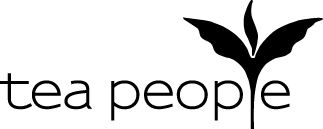Being a social enterprise we are as much committed to the protection of the environment as we are to our social causes. We are hence always looking at ways to reduce our environmental impact in everything we do. Here are a few examples:
TEABAGS: Our pyramid teabags are completely plastic free and are made up of a material called soilon which is derived from natural glucose (from plants such as corn) . This material is biodegradable and can be completely broken down in recycling facilities. They cannot however be turned into compost in your back garden as they are only commercially compostable.
RETAIL PACKS: The outer box of our retail packs is made of cardboard which is 100% recyclable. The clear inner bag is made of a material called Natureflex, which is a bio-film based on renewable resources (wood-pulp from managed plantations) and is fully compostable.
TIN CADDIES: We pack the tea directly into our tin caddies which means there is no other packaging involved. Our tins come with an inner lid which helps in keeping the tea fresh. You can refill them by buying our retail packs or larger refill packs and reuse them for a very long time. They are hence a very environmentally friendly option.
OTHER PACKS INCLUDING CATERING BAGS: Our stand-up pouches and bags are made of a multi-layered material that includes Paper, Natureflex NKME and BioPBS.
Paper : The outermost layer is made of paper which is obtained from renewable sources.
Natureflex NKME is a high barrier metallised film made of cellulose (wood pulp from managed plantations) and a thin layer of aluminium. This forms the middle layer and is fully compostable.
BioPBS:The innermost layer is made ofPBS or Polybutylene succinate which is a biodegradable plastic derived from natural resources, such as sugarcane cassava and corn. It decomposes into biomass, water and carbon dioxide.
OUTER PACKAGING AND CARTONS: While we maintain a stock of new boxes and other recyclable packaging material, we always strive to reuse all boxes or packaging that we receive from our suppliers if they are in a good enough condition. This is the reason why sometimes you may find that your parcel has been packed in a box which is not completely new or we have used a packing filler that is a bit different from our standard one, or even a plastic one because it's better to reuse it than to throw it away and add to the landfill

